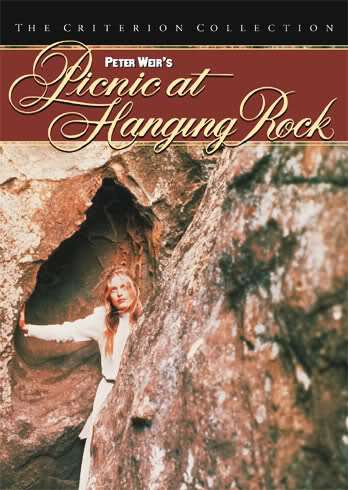Quote:
Desire as persistent and intense as the sunshine on a bright summer day is what teases out madness in Peter Weir’s Picnic at Hanging Rock. The objects, or goals, of these desires are disparate, though they all spiral out following the 1900 disappearance of three young women and a teacher from the Appleyard School during a trip to the small titular ridge on St. Valentine’s Day. The vanishing of these women is central to the plot, but Weir’s film is never as fascinated with the reasons for this absence as it is with the characters left in its inexplicable wake. Cliff Green’s script, adapted from Joan Lindsay’s novel of the same name, never goes about teasing what could have happened to these women at Hanging Rock, instead focusing on the wild cupidity that erupts in the surrounding community in reaction to the mystery.
For many of the characters, the loss of Miranda (Anne-Louise Lambert), a popular student at Appleyard, is what’s most potently felt, due to both her beauty and her ethereal otherness, as if she was always connected to some intangible beyond, even before evaporating into thin air. Right before Miranda and three of her classmates go wandering up Hanging Rock, their mistress, Mademoiselle de Poitiers (Helen Morse), eerily declares that Miranda is a Botticelli angel. One would likely assume that it’s merely a reference to her physical beauty, but she’s also alluding to Miranda as a figment of imagination, and Weir makes the interplay and conflict seen in the void between proven fact and imagination part and parcel of this incomparable psychological thriller.
This would match with Lindsay’s thinking, as the writer prefaces her novel with a short but pointed statement about her apathy in discerning the difference between fact and fiction. And as the film goes on, there’s an increasing displeasure in the acts of those who stunt creation and fantasy in the name of history and rules, which are here wielded as weapons of restraint by the Appleyard School. When Mrs. Appleyard (Rachel Roberts) bans one student, Sara (Margaret Nelson), from the picnic, she demands she read over a few classical poems, which Sara ignores in favor of writing her own poetry, which she’s quickly reprimanded for. Sara, an orphan, eventually falls victim to a familiar institutional rule, as her lack of tuition becomes reason enough for Mrs. Appleyard to throw her out on the street, without money or support.
Through Sara’s sad end, and the school’s reaction to the return of Irma (Karen Robson), one of the disappeared young women, Weir and Green suggest that an obsession with reason and logic, and adherence to the rigid contours of history and fact, brings about inhumanity and decidedly unreasonable behavior. Whatever happened to the missing young women on Hanging Rock is effectively haunting and strange, but it’s ultimately not nearly as bewildering as the way the other schoolgirls (and teachers) turn on Irma, who’s tied up and persecuted for information by her classmates. Miranda’s disappearance brings about manic self-doubt, regret, paranoia, and anger in the students, but also stirs up dark feelings in Appleyard’s neighbors. In the case of Michael Fitzhubert (Dominic Guard), a young privileged man who merely gazed at Miranda from afar while dining with his parents, a crusade to find Miranda leaves him catatonic and only serves to violently rouse the students at Appleyard even further.
It’s not much of a surprise then that Picnic at Hanging Rock ends with the unseen suicide of Mrs. Appleyard, an unmovable symbol of order and protocol, corrupted by power over allowances, conduct, and education. Even as human desire (for total knowledge, possession, sex, and even oblivion) brings about very real horrors in life, however, Weir doesn’t soften the rampant fear of death and the beyond. His sun-hued, bucolic images, sculpted by music by Bruce Smeaton, Gheorghe Zamfir, and Marcel Cellier, along with Bach, Mozart, and Tchaikovsky, convey nature’s eerie, ambivalent power over all. It’s the characters’ ceaseless need to fully understand, outsmart, and undermine nature’s sway that drives them into fervor and, often enough, leads them to shuffle off this mortal coil.
http://nitroflare.com/view/E9400B032A8A208/Peter_Weir_-_%281975%29_Picnic_at_Hanging_Rock.mkv
https://uploadgig.com/file/download/10367c2289Cce021/Peter Weir – 1975 Picnic at Hanging Rock.mkv
Language(s):English
Subtitles:English










